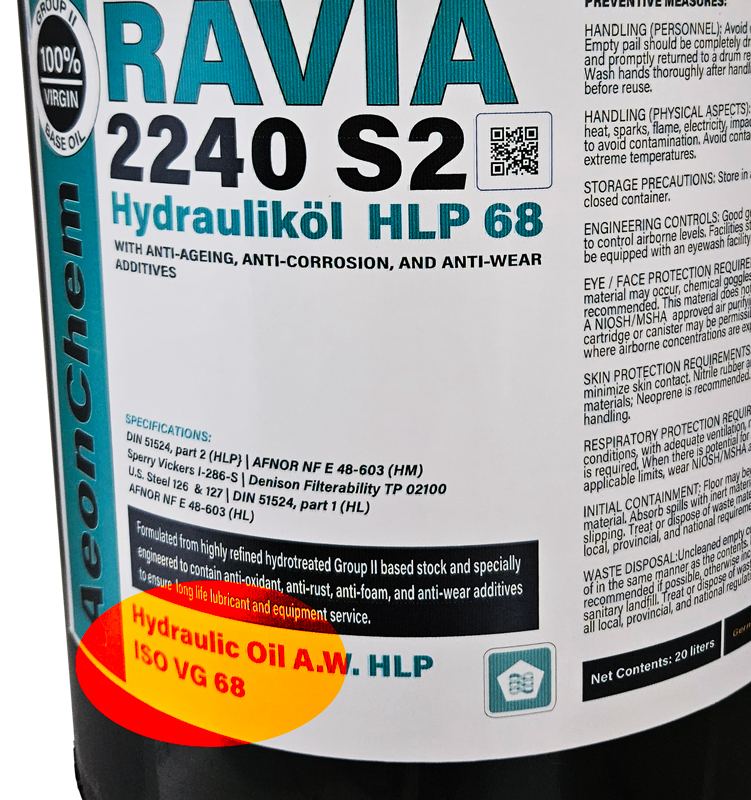Demystifying Oil Viscosity Grades: ISO VG vs. SAE
 When it comes to choosing the right oil for your machinery, understanding viscosity grades is crucial. Viscosity determines an oil's thickness or flow characteristics, and it's represented in two primary systems: ISO VG and SAE.
When it comes to choosing the right oil for your machinery, understanding viscosity grades is crucial. Viscosity determines an oil's thickness or flow characteristics, and it's represented in two primary systems: ISO VG and SAE.
ISO VG (International Standards Organization Viscosity Grade):
ISO VG is a globally recognized system for classifying industrial lubricants. It uses a number followed by "VG" to indicate viscosity, such as ISO VG 32 or ISO VG 68. The higher the number, the thicker the oil. Here's a quick breakdown:
• Lower ISO VG numbers (e.g., ISO VG 22-46): These oils are thinner and flow more easily. They're ideal for applications where low friction is essential, such as hydraulic systems.
• Intermediate ISO VG numbers (e.g., ISO VG 68-150): These oils offer balanced viscosity, suitable for various industrial purposes, including gearboxes and circulating systems.
• Higher ISO VG numbers (e.g., ISO VG 220-1500+): These are thicker oils designed for heavily loaded gearboxes, turbines, and other demanding applications.
SAE (Society of Automotive Engineers) Viscosity Grade:
SAE uses a different system, often seen on motor oil labels like SAE 10W-30. The "W" stands for "winter," indicating the oil's performance in cold temperatures, while the second number represents the oil's viscosity at operating temperature. Here's what you need to know:
• Low SAE numbers (e.g., SAE 0W-20): These oils are thin and provide excellent cold-start lubrication. They're common in modern engines for fuel efficiency.
• Medium SAE numbers (e.g., SAE 10W-40): These oils offer a balance between cold-start performance and high-temperature protection. They suit many passenger cars and light trucks.
• High SAE numbers (e.g., SAE 50): These oils are thicker and better for heavy-duty engines, such as those in trucks, off-road equipment, or high-performance vehicles.
Choosing the right viscosity grade is essential to ensure your machinery operates optimally. It's important to consult your equipment manufacturer's recommendations and consider factors like operating temperature, load, and application when selecting the right oil.
Got questions about viscosity grades or need assistance with choosing the perfect oil for your specific needs? Feel free to ask – we're here to help!